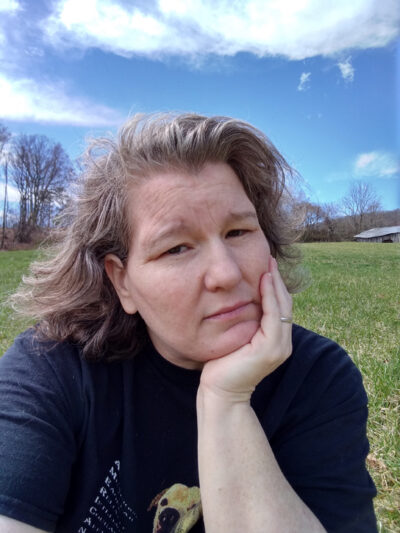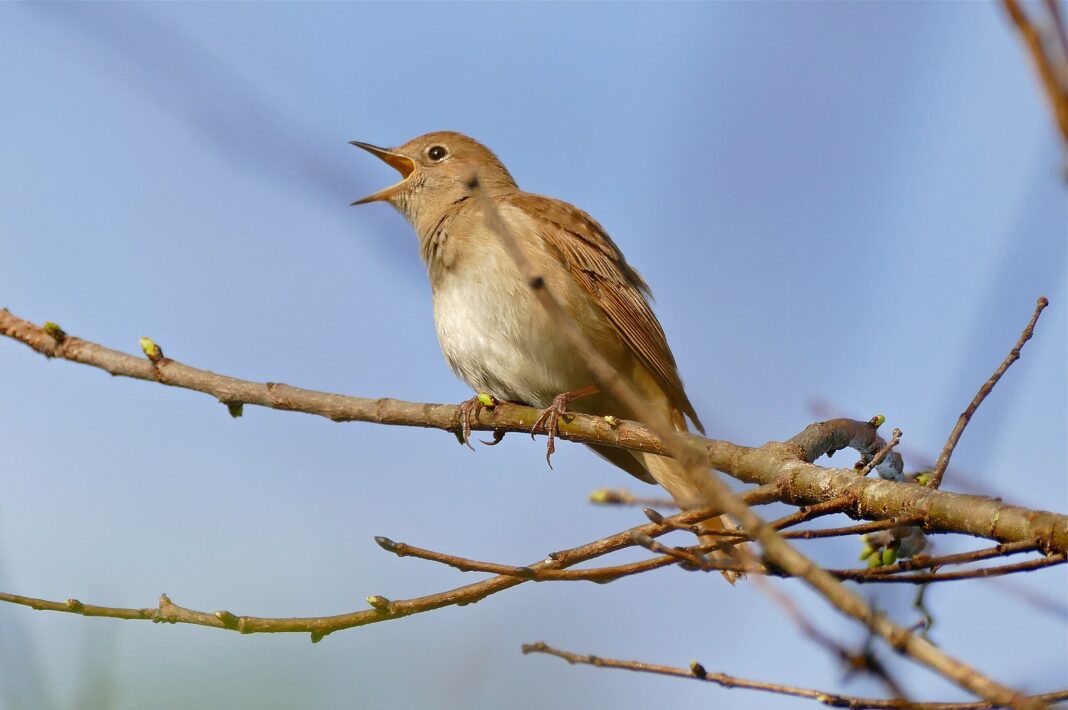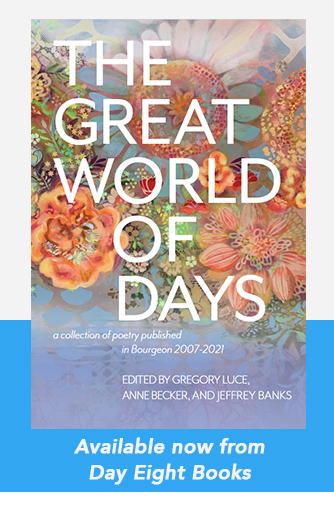What Should Be
Depression is not always darkness.
Sometimes it’s padded-room whiteness
the brightness of claustrophobic conversations
indivisibly linked, infinite shards and chips,
an overwhelming push toward cleavers of polite.
Why don’t you ask me how I’m feeling again?
my extended pinky finger invites
maybe I can project sensible this time –
contrite lines, propriety’s scripture,
at the very least, I can try.
I should be happy.
I know.
There are people who love me.
Most days, I scoop thankfulness from my pockets,
wiping away any stray fiber or bits of clay,
scattering windowsills lightly to keep their kindnesses fed,
but lately the sills, swollen tight, refuse to lift;
half-starved, necessity’s thrust frees flight.
Alone behind the window’s pane,
ingratitude’s guilt turns blighted pages,
and I spend time forcing appreciation
between each line, handwriting attributes,
connecting them to directional signs.
They go right there.
I should be thankful.
I know.
If I just work harder, I can make it all right –
pinching my dry clay, crumbling bits fall.
Sponging and kneading and soaking, I try, I try, I
mismeasure quantities added by sight,
starting over before the end. Forgetting.
What is it, again, I begin?
A blind oversight, gritty and overripe,
the spine of everything that’s wrong with me —
I do not wish to have more. I wish to be more —
futility gnaws each weeping rind.
I should be better.
I know.
Practicality whispers denials from the firing room,
metamorphosed slurry
slips down my upraised hands like batter.
I never thought it would be easy,
but I thought it would be possible.
There isn’t any wheel.
And the kiln has grown cold.
And nothing is
as it should be.
Countermelody
And on the worst days, the voices I hear
are both chromatic and discordant.
Aloud, I wonder how long it will take
to feel better; but hearing no replies,
despondency unrolls a dampened fugue,
dropping minor tones, transposing
dull, brave light.
On the worst days, the echoing coil tightens,
trilling in concentric rounds,
spiraling their measures as quakes of doubt,
my parched tongue – shrunken and turned inward –
lashes infant thoughts as they hatch,
fluttering between my ribs like notes to a staff,
silent and aching –
packed, frictional shackles sweating with want.
I still know what it looks like to be happy.
In remembrances,
joy lures light to its center
where it crescendos enough
to slake every thirst.
On the best days, I remember, warmth
thrums in braided adagio, scaffolding freedom
until it can hold its own footing;
emboldened, it begins to climb,
seeking timid tones hiding beneath higher leaves.
.
Yearning to climb Freedom’s scale, I, too, turn over leaves,
one by one, glancing, sidewise, for treasures underneath.
I remember what it looks like to be happy;
building the coda as if it were stone, readied
for the weight it will be required to hold,
I step onto branching chords, the meter quickening,
expelling my shackled thoughts,
winging them, in ribbons of song, skyward.
Drunk with their improvised madrigal,
I forget everything I thought I once remembered,
until, with reckless curiosity, I declare,
“I want to see the bird which makes that sound!”
Lavender
More than the old roses, hypnotic angels
of seduction unwinding heady perfumes
in spirals glowing pinks,
more than the orchids, reaching like ghosts
pouty lips and ballerina arms
soaking in must-haves like prayers,
more than the canna, speckled sunshine
deep pitchers showing their open mouths
like borrowed laughter loud and spray-canned,
more than the Bolivian gloxinia, busy and alive
each morning as word got around
bees dipping their drunken toes into bright bells,
more even than the gerbera, lanky-fingered and loyal
fuzzy deep-green veins blushing
concealing their divisible mounds,
I love the lavender which springs in compact clumps
the tiny purple blossoms and the grassy
gray-green pods in which they sleep.
Which when pressed, kiss the tips of my fingers
wetly, slicking the whorls. I rub it in just so
later pressed to my face I can still catch
echoes of clean.
Which when plucked, gather
in the shallow basin of my palm softly.
I fill my pockets like a thief.
I love the lavender which grows from dusty crags
between the cared-for places, grows on quiet stalks
grows even though no one tends it
and makes every single part of itself
useful.

Christina Linsin is a poet and teacher in Virginia. Her work examines connections with nature, complexities of mental illness, and difficulties with creating meaningful connections with others amid life’s obstacles. Her poems have been published or are forthcoming in Stone Circle Review, Still: The Journal, Tinderbox Poetry Journal, and Whale Road Review.
Image: Bernard DUPONT from FRANCE, CC BY-SA 2.0 https://creativecommons.org/licenses/by-sa/2.0, via Wikimedia Commons


